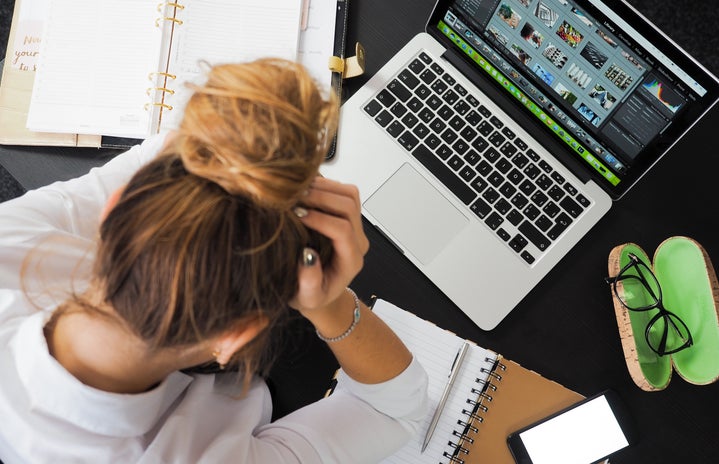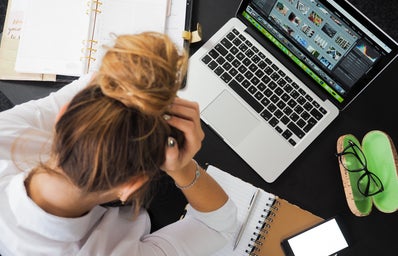The Her Campus National Editors write about products we love and think you’ll love too. Her Campus has affiliate partnerships, so we get a share of the revenue from your purchase. All products are in stock and all prices are accurate as of publication.
I’ve shared a bit in the past about my experiences with sensory processing and the accommodations I created in my dorm to help me with that. But, I wanted to talk more about the overall experience of having sensory processing issues and experiencing overstimulation in college. From talking with people in my life – whether on campus or back home, I know lots of people also deal with sensory issues. I don’t think there is anything wrong with being open about this subject – many environments on college campuses are not always the most accessible for every student (that’s the education major in me starting). There’s an important conversation to be had about how these spaces can be overwhelming for many students and even ways to remove that barrier.
One of my biggest triggers for overstimulation is noisy, crowded environments. It isn’t exclusive to just college; I’ve experienced overstimulation in busy places for years. It’s overwhelming and frustrating when a space is so loud that I cannot even hear the people I’m with. I often get the feeling that I need to leave wherever I am right away. On campus, I’ve noticed that academic buildings during transition blocks are where I get the most overstimulated. I will sometimes avoid the crowds altogether by waiting for that transition block to end because I know everyone will be in class by the time it’s over. I will also go straight into a quieter part of that building – whether it’s a study room or an emptier student space. In the past, I’ve also shared how essential my noise-canceling headphones and earplugs are for combatting sound overstimulation. These work wonders at blocking out unwanted noise. I never leave the dorm without either or both of these.
The other major trigger I experience is overheating. Sometimes, when I get too hot, it feels unbearable to be in my own skin. This happened recently when I was in a classroom that was so hot for no reason. My face was burning and I couldn’t wait for class to end so I could leave. I did take a small break by going to the bathroom, but I still had to come back to a boiling classroom. I relieved this overstimulation by going outside after class and taking a few minutes to just exist in the fresh air. I know it sounds ridiculous and unhelpful, but some deep breaths and cool air on my face really did help to bring me out of it. I’ve noticed on the days when I’m extra overwhelmed, spending some time outside – even if I’m just walking to my next class, does make a difference.
A big part of dealing with sensory issues is often masking the fact that you have sensory issues. Masking is a thing that everyone from neurodivergent people to people with anxiety disorders does. It’s basically adapting to an environment that wasn’t originally designed to meet your needs. Let me tell you – it’s exhausting. I know that everyone is tired after a long day of work and classes, but the extra strain of masking my anxiety and sensory issues leaves me wanting to crawl into bed for a while. This is why I think it’s so important to care for yourself when you’re overstimulated. Whether it’s alleviating the triggers in the immediate situation, or unwinding later that day, taking care of yourself matters. It helps prevent burnout, which is something no one wants to experience.
I won’t lie, sensory issues are a b*tch to deal with. But, I’ve found that identifying strategies for mitigating the effects of overstimulating environments and taking care of myself makes it easier to handle them, especially on a college campus.


